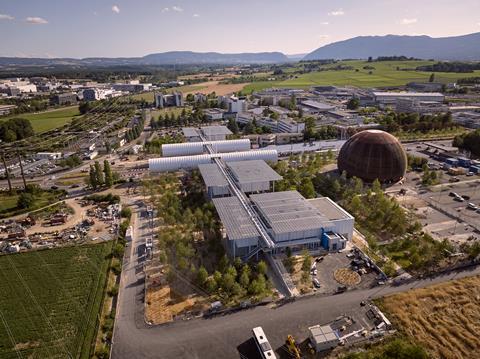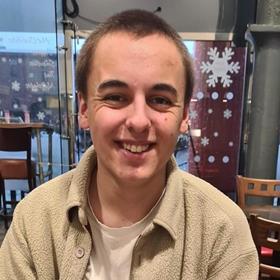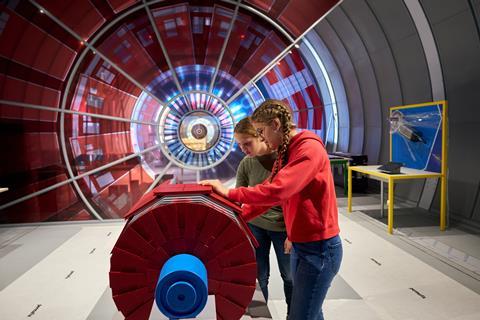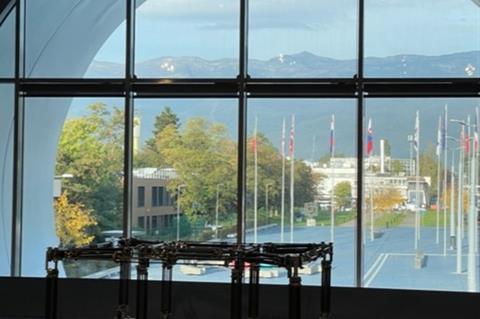Student Finley Simpson shares his experience of the new Science Gateway Centre at CERN in Geneva.

In October 2023, I had the opportunity to go on a trip with my school to the new CERN Science Gateway Centre in Geneva, Switzerland. With a group of 25 Stowe School students, I spent four days enjoying the landmarks of Geneva and exploring the site of a mammoth, world-changing science experiment.

From my school, it was the physics and chemistry A-Level students who were invited on this expedition to learn more about particle theory and what future career opportunities lie in store for science students.
When we arrived at the Science Gateway Centre, we were met by a large, sci-fi looking building that stretched over the tramway below.
We had a great, immersive presentation about how the detector works, while being sat 56 metres above a hot beam of particles travelling at 99.995% the speed of light!
We were checked in to the site by the friendly team, and then directed to the staff restaurant where we were able to enjoy a variety of delicious fresh meals, alongside Nobel-prize winning scientists.
I am not sure if they used the four trillion degrees celsius plasma beam from the Large Hadron Collider, or just a blowtorch to melt the sugar, but the crunch on the crème brûlée was divine!
About CERN
Physicists and engineers at CERN, which was founded in 1954, use the world’s largest and most complex scientific instruments to study the basic constituents of matter – fundamental particles.
The instruments used at CERN are purpose-built particle accelerators and detectors. Accelerators boost beams of particles to high energies before the beams are made to collide with each other or with stationary targets. Detectors observe and record the results of these collisions. The Large Hadron Collider (LHC) is the world’s largest and most powerful particle accelerator.

Its new Science Gateway Centre is aimed at pupils aged five to 19 and features a host of exhibitions and laboratory workshops.
A selection of science shows cover states of matter, superconductivity, particle detection, engineering and big data. These are shown in a 900-seater auditorium.
After this nourishing meal, we were taken to the CERN Control Centre, where we got to enjoy the exclusive sight of the background operations of the CERN experiments. In the control centre, we had a Q&A with one of the engineers from the site, who answered all our questions about what happens at CERN.
I am not sure if they used the four trillion degrees Celsius plasma beam from the Large Hadron Collider, or just a blowtorch to melt the sugar, but the crunch on the crème brûlée was divine!
Next in the schedule was a short coach-ride to the ALICE (A Large Ion Collider Experiment) detector, which is one of eight large detectors used for measuring the output of heavy-ion particle collisions. We had a great, immersive presentation about how the detector works, while being sat 56 metres above a hot beam of particles travelling at 99.995% the speed of light.

The day finished with the interactive galleries in the Science Gateway Centre where we got to experience an in-depth explanation of each component of the Large Hadron Collider, alongside an exhibit where you get to experience being a photon in a quantum realm.
Overall, the trip was very informative and fun, giving the students a greater understanding of the A-Level physics and chemistry content, as well as expanding our sights for the future of science.
For more information about school trips to CERN visit visit.cern/group-bookings










